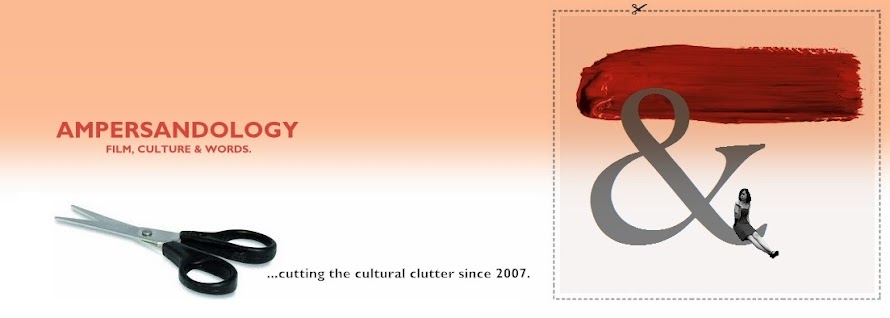A wealth of pop culture knowledge is generally esteemed to be handy in one of two places: Trivial Pursuit or head writer on Gilmore Girls. Even the name—pop culture—implies something disposable. Pop, the bubble bursts, and in twenty years what’s hot now will be on a bargain shelf in the basement of whatever is going to replace Wal-Mart. The shape of pop culture is supposed to change with the years, but more and more, I see more of an echo: pop culture is more like a language that we all speak. Some speak it more fluently than others, but the places it taps into are ingrained.
Example: Singin’ in the Rain. It’s one of those indelible movies that’s crawled into some kind of super recess that exists within and without us all; asking any random Tom, Dick or Harry to name an old musical might not get you the exact name, but describing some affable dope dancing in three feet of streetwater courting pneumonia will probably jingle some Simpsons-fueled point of recognition. Fifty years later, and we’re stuck with the near-immortal Singin’ in the Rain. But its release didn’t even tickle at the cultural monolith it would become: it was welcomed by critics with an unimpressed sigh. The studio had given Gene Kelly the go-ahead because of the knock-down, drag-out success of An American in Paris the previous year, but were disappointed as the Oscars came and went without any Best Picture nod. Critics concluded: charming diversion, but no An American in Paris. Gene Kelly, being awesome, has the last guffaw on this one.
If you’re me, you think: hold on, self. The movie itself was a movie made in the 1950s but the action is set in the 1920s (an iconic era if there ever was one). The whole plot is build onto the revolution that hit Hollywood once the talkies were invented. It’s literally replacing one pop culture with another: silent pictures move aside for the sound revolution, and the mode of communication shifts to the left. But didn’t the motion picture slowly replace vaudeville, as it mined the talent pools onstage for the new faces onscreen? That is the ECHO in motion.
It gets worse (and by worse, I mean more obsessive) in my head the more I think about it: Stanley Kubrick uses the titular song as social punctuation in his A Clockwork Orange: the jarring placement of the song in the middle of a rape scene is definitely designed towards the reaction of we, the pawns. After all, Stanley Kubrick is a magnificent bastard who wants to see you cry (the club motto around these parts). In that evil-genius scenario, that assumes the song, and therefore the movie, as a cultural bookmark for the audience; it relies on some kind of bastardized version of the uncanny that resonates through the years, replacing the expectation of the song (happy! Singy! Rainy!) with the reality of its misuse. And now this:
To which the helpless pop culturist in me cries, HOLY CRAP, self, what the hell is this replacing?
Oh, ho, but it’s not replacing, my friend. Oh, no. It’s recycling. That’s where the real power of pop culture comes in: the obstinate tendency towards reinvention. Everything is a version of something else. Reuse the same tropes again and again, and the ones that stick are the ones that hold some kind of cultural truth. It’s a language, a cultural lexicon that communicates history, society & secret handshake all in one iconic image or phrase. The ECHO.
To close: if Gene Kelly was still alive and wearing those cute little berets of his, you’d better believe he’d breakdance. That guy knew what time it was, did he ever. Boyfriend set the damn clock.

No comments:
Post a Comment